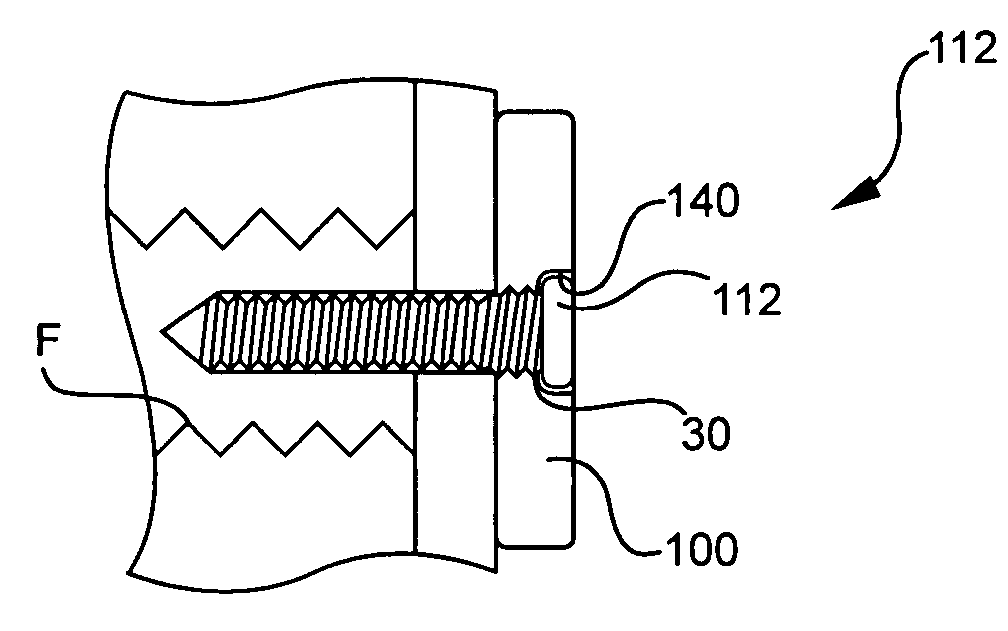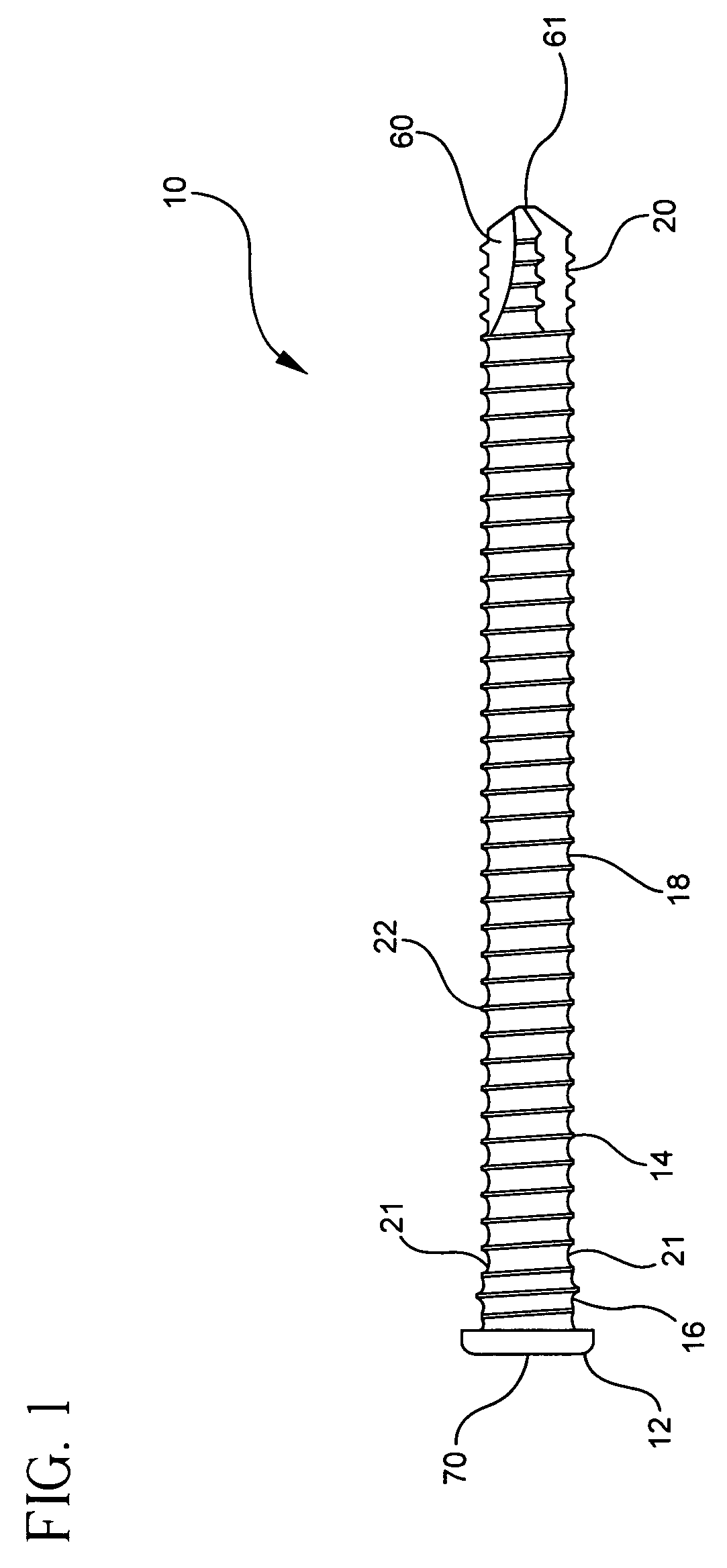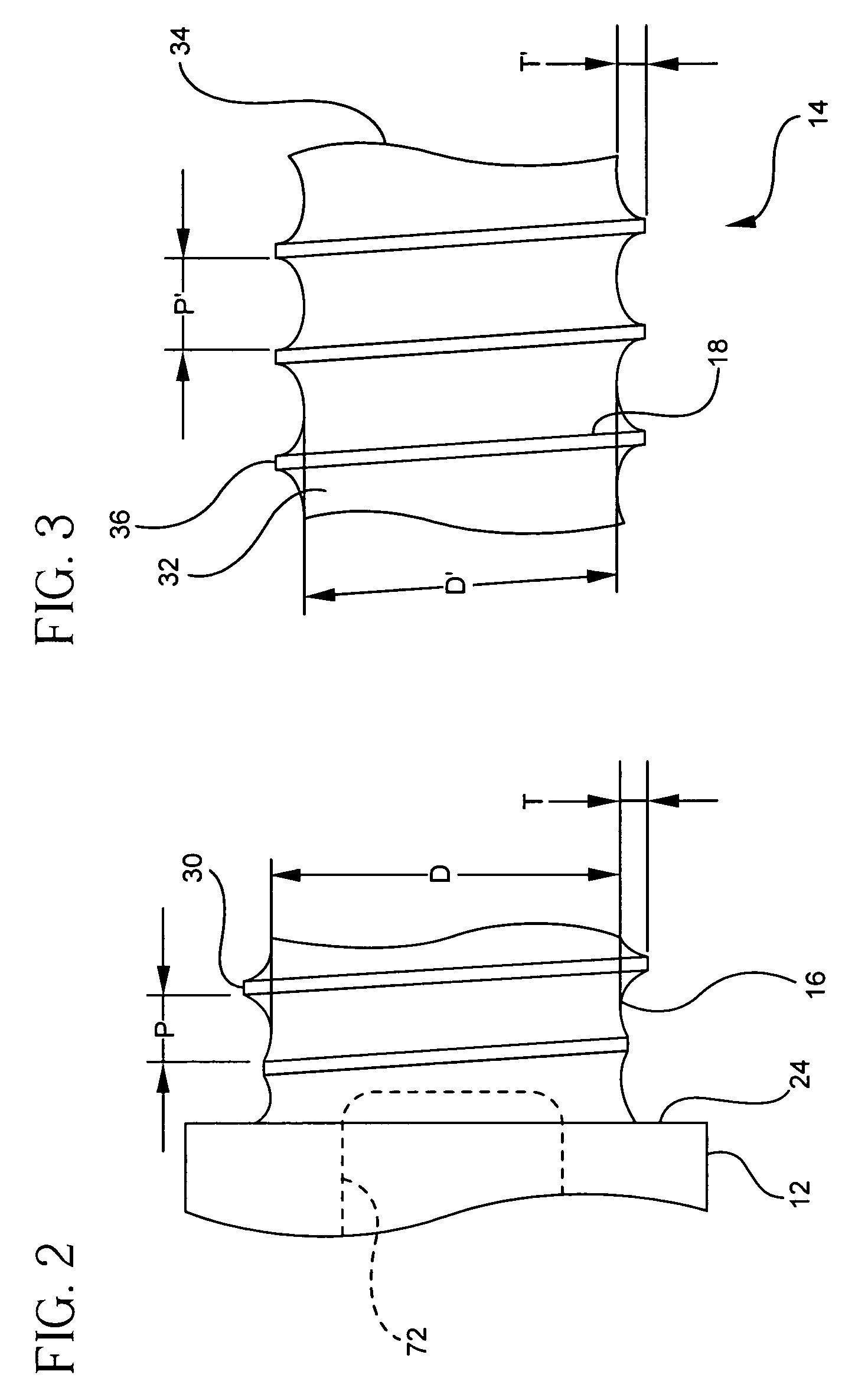Self-guiding threaded fastener
a threaded fastener and self-guiding technology, applied in the field of fixing orthopedic implants, can solve the problems of weakened engagement between the fastener and the plate, undesirable cross-threading, and inability to optimize the engagement between the screw and the orthopedic plate, so as to facilitate the threading process and avoid cross-threading
- Summary
- Abstract
- Description
- Claims
- Application Information
AI Technical Summary
Benefits of technology
Problems solved by technology
Method used
Image
Examples
Embodiment Construction
[0034]For the purposes of promoting and understanding the principles of the present invention, reference will now be made to the embodiment illustrated in the drawings and specification language will be used to describe the same. Nevertheless, by those skilled in the art, it will be understood that no limitation of the scope of the present invention is hereby intended and, further, changes in the illustrative device may be made to the preferred embodiments disclosed herein without deviating from the scope of the present invention.
[0035]As shown in FIG. 1, one embodiment of bone screw 10 includes a head 12 and a shank 14. Shank 14 extends downwardly from head 12 and preferably includes first portion 16, second portion 18 and distal tip 20. Shank 14 also preferably includes thread 22 extending radially outward from shank 14. Thread 22 extends radially outward from shank 22 as well as substantially continuous from the proximal end of first portion 16 to distal tip 20.
[0036]As is eviden...
PUM
 Login to View More
Login to View More Abstract
Description
Claims
Application Information
 Login to View More
Login to View More - R&D
- Intellectual Property
- Life Sciences
- Materials
- Tech Scout
- Unparalleled Data Quality
- Higher Quality Content
- 60% Fewer Hallucinations
Browse by: Latest US Patents, China's latest patents, Technical Efficacy Thesaurus, Application Domain, Technology Topic, Popular Technical Reports.
© 2025 PatSnap. All rights reserved.Legal|Privacy policy|Modern Slavery Act Transparency Statement|Sitemap|About US| Contact US: help@patsnap.com



